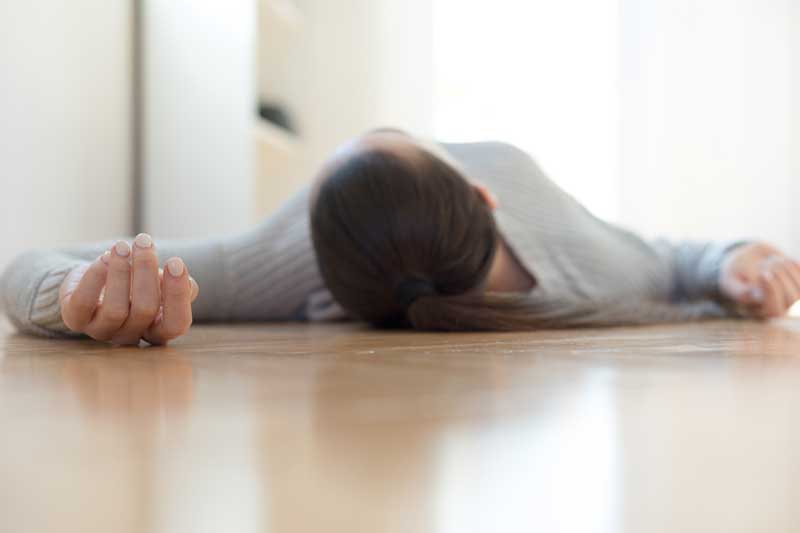Fainting can be alarming. One moment, you’re fine. The next, everything is black. Some faint only once in their lifetime. It may happen more often for others. The experience can be frightening, but knowing what might trigger the experience can help. If you know what’s causing fainting, you may be able to take steps to prevent it. These unexpected blackouts are due to three common reasons.
1. Dehydration
Dehydration is just being thirsty, you may think. But it can lead to much more. Your body needs water to function well. If you don’t drink enough, your blood volume falls. That means your veins and brain don’t get as much blood flowing through them. More blood to the brain means a lower chance of fainting.
Think of a garden hose. The flow is weak if there’s not enough water pressure. When you’re dehydrated, the same thing happens in your body. Your blood pressure falls, and the brain doesn’t get enough oxygen.
What can make you dehydrated? But it could be excessive sweating, especially if you’re active. Perhaps you’ve been in the hot sun all day. Other illnesses, such as vomiting or diarrhea, can also drain your fluids quickly. Syncope causes can vary, and one of the most common is dehydration. Drink a lot of water to avoid dehydration. Drink plenty of water. If you’re sweating a lot, add a sports drink with electrolytes. Sip water slowly if you feel dizzy or weak, and sit down.
2. Sudden Drops in Blood Pressure
Your body works hard to keep everything balanced. One of these balances is blood pressure. When you suddenly stand up after sitting or lying down, your blood pressure can drop. This is called “orthostatic hypotension.” It’s more common than you might think.You might feel a quick wave of dizziness. If it’s severe, you might faint. Why does this happen? When you stand, gravity pulls blood down to your legs. Normally, your body adjusts to make sure your brain still gets enough blood. But sometimes, your body doesn’t react fast enough.
This can happen more often if you’re on certain medications. Diuretics, heart medications, and even antidepressants can cause this. Older adults are especially prone to these sudden drops in blood pressure, which can lead to dizziness or fainting. To reduce your risk, get up slowly. When you wake up, sit on the edge of the bed for a moment before standing. Take a deep breath. Give your body time to adjust and allow your circulation to stabilize. Staying hydrated and avoiding rapid movements can also help minimize the chances of a sudden drop in blood pressure.
3. Emotional Shock or Fear
Believe it or not, strong emotions can cause fainting. Some people faint at the sight of blood or needles. Others might faint from overwhelming fear or sudden bad news. This type of fainting is known as “vasovagal syncope. “In simple terms, your body dramatically reacts to stress. Your heart rate slows down. Blood vessels in your legs widen. This causes blood to pool in the lower body. As a result, there’s less blood for the brain, and you may faint.
It’s a bit like a circuit breaker. When the system is overloaded, it shuts down for a moment.
If you know certain situations trigger your fainting, you can try to prepare. Practice deep breathing to calm yourself. Sit or lie down if you feel a wave of fear or anxiety. If you can, avoid situations that make you extremely anxious. Stay hydrated and eat regular meals to maintain blood sugar levels. You may also want to carry snacks or a water bottle with you. Wearing loose, comfortable clothing can help prevent discomfort. Talk to a healthcare professional to explore additional strategies or treatments that could reduce your risk of fainting.
Conclusion
Fainting can be a scary experience. However, understanding the common triggers helps you feel more in control. Whether it’s dehydration, sudden blood pressure changes, or an emotional shock, knowing your body’s reactions is key.
If you’re dealing with frequent fainting episodes, consult a healthcare professional.
Pay attention to your body. Stay hydrated. Be mindful of your movements. And take care of your emotional health. These small steps can make a big difference in keeping you steady on your feet.
Also read: Inflammation Drives Age-Related Diseases
